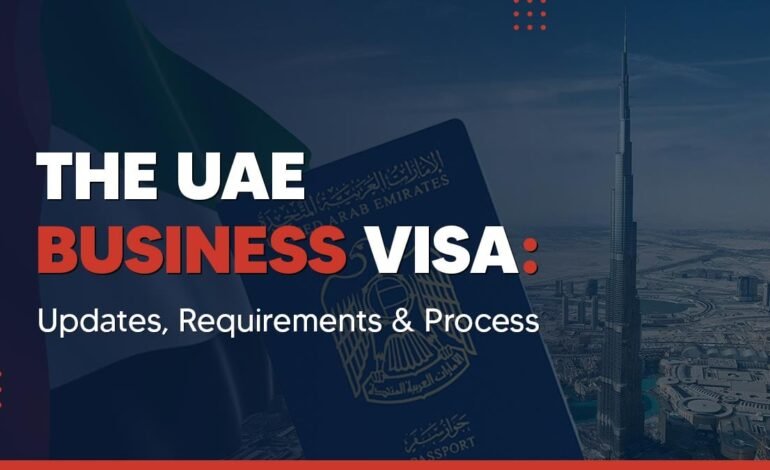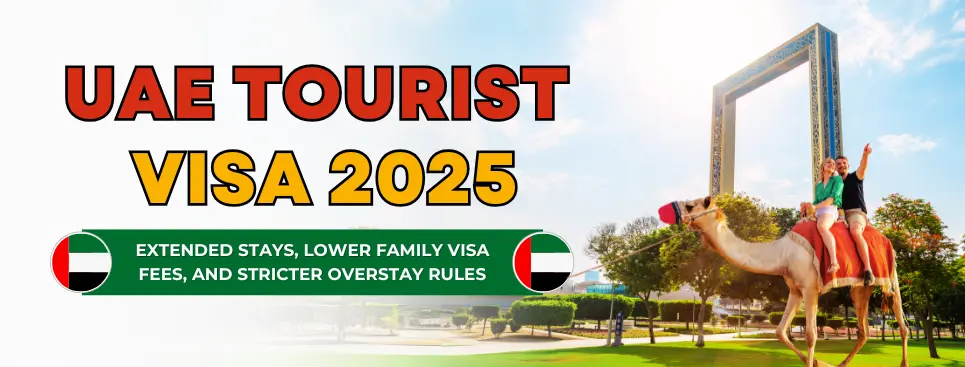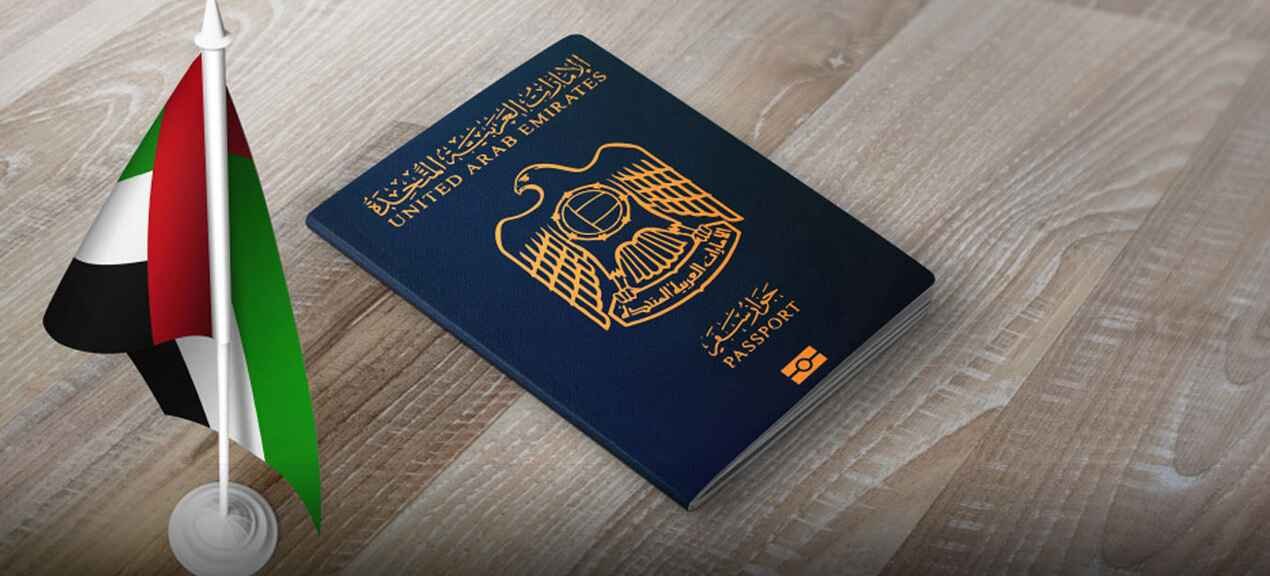Living as an expat in the UAE often means making difficult choices about family. The constant question of whether you can bring your children or aging parents weighs heavily on millions of residents who’ve built careers in Dubai, Abu Dhabi, and beyond. The good news is that the UAE’s Dependent Visa system provides a clear pathway for families to reunite and build stable lives together.
With recent updates to sponsorship rules in 2025, including extended age limits for sons and streamlined application processes, bringing your loved ones to the UAE has become more accessible. This comprehensive guide walks you through everything you need to know about sponsoring children and parents, from income requirements to documentation and common pitfalls to avoid.
Whether you’re a new resident planning your family’s future or an established expat ready to bring your parents closer, understanding these sponsorship rules can transform your UAE experience from a temporary assignment into a true family home.
What is a Dependent Visa?
A Dependent Visa represents a residency permit sponsored by a UAE resident, allowing specific family members to live legally in the country under the sponsor’s responsibility. Unlike employment-based visas that depend on job contracts, Dependent Visas create family-based residency tied to the sponsor’s legal status and financial capability.
The visa system recognizes that successful integration of expatriate families strengthens the UAE’s social fabric and economic stability. When families can live together, expat workers tend to stay longer, contribute more meaningfully to their communities, and invest in local services and education.
What makes Dependent Visas unique is their focus on genuine family relationships rather than economic contribution. While the sponsor must meet financial requirements, the dependents themselves don’t need to justify their presence through employment or business activities. This creates stability for children’s education and provides elderly parents with access to world-class healthcare and comfortable living conditions.
The visa category specifically covers children, elderly parents, and in some cases, stepchildren or adopted children with proper legal documentation. It doesn’t extend to siblings, extended family members, or non-dependent adult children who can support themselves independently.
Understanding this distinction helps families plan their immigration strategies more effectively, focusing on legitimate dependency relationships that UAE authorities recognize and support.
Eligibility and Sponsorship Rules (2025)
The 2025 sponsorship rules reflect the UAE’s commitment to family values while maintaining reasonable requirements that ensure sponsors can genuinely support their dependents.
Children Sponsorship Rules
Sons can now be sponsored until age 25, representing a significant improvement from the previous 18-year limit. This extension acknowledges modern education patterns where young adults pursue higher education or specialized training well into their twenties. The extended age limit provides families with greater flexibility for university planning and career development.
Daughters enjoy unlimited age sponsorship as long as they remain unmarried. This rule recognizes cultural values around family support while providing practical benefits for daughters pursuing education, careers, or simply choosing to remain with their families longer.
Stepchildren qualify for sponsorship with proper legal documentation, including court-approved custody arrangements or formal adoption papers. This inclusivity ensures blended families can live together without bureaucratic barriers separating loving relationships.
Parents Sponsorship Rules
Sole responsibility requirement means sponsors must demonstrate they are the primary or only source of support for their parents. This doesn’t necessarily mean other siblings can’t contribute financially, but the sponsor must prove they bear primary responsibility for their parents’ welfare.
Minimum salary thresholds vary by emirate but typically require AED 20,000 monthly income or higher. Dubai and Abu Dhabi may have higher requirements, while other emirates sometimes accept lower amounts. Some emirates also consider total family income when multiple family members contribute to household expenses.
Suitable accommodation standards require sponsors to provide living spaces that meet UAE health and safety standards. This typically means adequate bedroom space, proper sanitation facilities, and living conditions that don’t overcrowd family members.
The rules also consider sponsors’ existing family obligations. If you already support a spouse and children, authorities evaluate whether adding elderly parents creates reasonable or excessive financial strain.
Documents Required
Successful Dependent Visa applications require comprehensive documentation that proves relationships, financial capability, and legal compliance. Missing or improperly prepared documents cause most application delays and rejections.
Core Relationship Documents
Valid passports for both sponsor and all dependents must have at least six months remaining validity. Ensure all pages are legible and undamaged, as immigration officers scrutinize these documents carefully.
Birth certificates for children must include clear parent identification and be properly attested by your home country’s Ministry of Foreign Affairs and UAE consulate. These documents establish the parent-child relationship that justifies sponsorship.
Marriage certificates prove spousal relationships when sponsoring stepchildren or when both parents need to demonstrate family unity for parent sponsorship applications.
Financial Documentation
Current salary certificate from your UAE employer should detail your monthly income, job title, and employment duration. The certificate must be recent, typically issued within 30 days of your application.
Labor contract copy provides additional employment verification and shows your visa validity period, which affects dependent visa durations.
Bank statements covering 3-6 months demonstrate consistent income and financial stability. Authorities look for regular salary deposits and sufficient account balances to support additional family members.
Accommodation Proof
Ejari or tenancy contract must show adequate space for additional family members. One-bedroom apartments rarely qualify for parent sponsorship, while larger accommodations demonstrate proper planning for dependent needs.
DEWA utility connection in the sponsor’s name provides additional proof of legitimate UAE residence and housing stability.
Insurance and Health Requirements
Medical insurance coverage for all dependents must meet UAE minimum standards and cover emergency treatment, routine healthcare, and any pre-existing conditions that require ongoing care.
Health certificates from dependents’ home countries may be required, especially for elderly parents who need to demonstrate they don’t have communicable diseases or conditions that would strain UAE healthcare resources.
Application Process
The Dependent Visa application process follows a structured timeline that typically completes within 2-3 weeks when properly managed. Understanding each step helps prevent delays and ensures smooth processing.
Step 1: Document Preparation and Attestation
Begin by gathering all required documents in your home country or through consulate services. Attestation requirements vary by country, but generally involve:
- Notarization by local authorities
- Authentication by your country’s foreign ministry
- Verification by UAE consulate in your home country
This step often takes 2-4 weeks, so start early in your planning process.
Step 2: Online Application Submission
Dubai residents use the GDRFA (General Directorate of Residency and Foreigners Affairs) online portal, while other emirates process applications through ICA (Immigration and Checkpoints Authority) systems.
Create detailed online profiles for each dependent, ensuring all information matches your supporting documents exactly. Small discrepancies in names, dates, or other details can trigger review delays.
Step 3: Fee Payment and Entry Permit
Pay required fees through official channels, keeping all receipts for your records. Upon approval, you’ll receive entry permits valid for 60 days, allowing your dependents to enter the UAE and complete the residency process.
Step 4: Medical Examinations
After arrival, dependents must complete medical examinations at approved facilities. Book these appointments immediately, as popular centers often have waiting lists that can extend processing times.
Step 5: Emirates ID and Final Processing
Complete Emirates ID applications and final visa stamping. This final step officially grants residency status and provides dependents with legal identification for accessing services, opening bank accounts, and enrolling in schools.
Dependent Visa Fees (2025)
Understanding the complete cost structure helps families budget appropriately for the visa process and avoid unexpected expenses.
| Service Category | Cost Range (AED) | Validity Period |
|---|---|---|
| Entry Permit per Person | 300-500 | 60 days |
| Dependent Residency Visa | 3,000-4,000 | 1-2 years |
| Medical Examinations | 300-600 per person | One-time requirement |
| Emirates ID | 300-500 per person | Same as visa validity |
| Status Change (if applicable) | 500-1,000 | One-time fee |
Processing varies by emirate and service level chosen. Express services typically cost 50-100% more but reduce waiting times significantly.
Additional costs may include document attestation fees, translation services, and typing center charges for application submission. Budget an extra AED 1,000-2,000 per person for these ancillary expenses.
Multiple dependent discounts aren’t typically available, so families with several children or both parents should budget for individual fees for each person.
Duration and Renewal
Dependent Visas typically match the sponsor’s residency duration, ranging from one to three years based on the sponsor’s employment contract and visa type. This alignment ensures families stay together throughout the sponsor’s UAE residence period.
Renewal requirements include proof of continued employment, maintaining minimum salary requirements, and demonstrating ongoing accommodation suitability. Sponsors must show they still meet the same financial and housing standards that qualified them initially.
Income fluctuations can complicate renewals if salaries drop below required thresholds. However, UAE authorities often consider temporary reductions if sponsors demonstrate efforts to maintain income levels and continue supporting their dependents adequately.
Early renewal is possible and often recommended 2-3 months before expiration to avoid gaps in legal status that could affect school enrollment, healthcare access, or travel plans.
Benefits of Dependent Visa
Dependent Visas transform the expat experience from temporary assignment to genuine family life, providing stability that benefits both families and the UAE community.
Educational access allows children to enroll in UAE schools and universities, often at resident rates significantly lower than international student fees. This long-term educational planning becomes possible when families can count on continued residence.
Healthcare benefits include access to UAE’s excellent medical system, often through employer-provided insurance that covers dependents. Elderly parents particularly benefit from advanced healthcare facilities and specialists available throughout the country.
Social integration deepens when families can participate in community activities, sports clubs, and cultural events without worrying about temporary status or sudden departures.
Financial stability emerges as families can make long-term investments in education, housing, and local services rather than maintaining expensive temporary arrangements.
Career continuity for sponsors improves when family obligations don’t require frequent travel or extended absences for family care in home countries.
Common Rejection Reasons
Understanding why applications fail helps families avoid costly mistakes and resubmission delays.
Insufficient income documentation tops rejection lists. Many sponsors assume their basic salary meets requirements without considering that authorities evaluate total financial obligations, including existing family members, housing costs, and debt payments.
Inadequate housing arrangements cause frequent rejections, especially for parent sponsorship. Authorities want to see that elderly parents will have appropriate privacy, accessibility, and comfort rather than simply fitting into existing family spaces.
Document authentication issues create problems when attestation doesn’t follow proper channels or documents show signs of alteration. UAE authorities maintain strict standards for document integrity and can easily identify improperly prepared paperwork.
Inconsistent information between application forms and supporting documents triggers automatic reviews that often result in rejection. Double-check that names, dates, and other details match exactly across all submitted materials.
Previous immigration violations by either sponsors or dependents can impact approval chances. Overstays, visa violations, or legal issues in the UAE or other countries require disclosure and may necessitate additional documentation or waiting periods.
FAQs – UAE Dependent Visa 2025
Can I sponsor my wife’s parents?
Generally, no. UAE rules typically only allow sponsorship of your own parents unless you can prove sole financial responsibility for in-laws and meet higher income requirements. Some emirates make exceptions for special circumstances.
Can I sponsor a newborn in UAE?
Yes, children born in the UAE to resident parents can receive dependent status. You’ll need to obtain a birth certificate from UAE authorities and apply for the child’s first residency visa within the required timeframe.
Is there an age limit for daughters?
No age limit exists for unmarried daughters. However, marriage automatically ends their dependent status, requiring them to obtain residency through their spouse or independent means.
What happens if my salary drops after visa issuance?
Temporary salary reductions don’t automatically cancel dependent visas, but you must maintain the ability to support your dependents. Significant long-term income drops may affect renewal applications.
Can dependents work in UAE?
Dependent visa holders need separate work permits to accept employment. Adult children can often obtain their own employment visas, while elderly parents typically cannot work due to age restrictions.
What if I change jobs?
Dependent visas typically transfer with sponsor employment changes, but you may need to update documentation and potentially reapply depending on new salary levels and emirate differences.
Conclusion
The UAE Dependent Visa system reflects the country’s commitment to family values while maintaining reasonable standards that ensure sponsors can genuinely support their loved ones. With 2025’s expanded age limits and streamlined processes, bringing children and parents to the UAE has become more accessible for qualifying families.
Success requires careful attention to income requirements, proper documentation, and realistic assessment of your ability to support additional family members in UAE’s cost environment. The investment in time and resources pays dividends through family stability, educational opportunities, and the peace of mind that comes from keeping loved ones close.
Start your application process early, focusing on meeting income and housing requirements while preparing comprehensive documentation. The reward—having your family together in one of the world’s most dynamic and family-friendly environments—makes the effort worthwhile.
Whether you’re planning your first dependent visa application or preparing for renewals, remember that UAE authorities want families to succeed. By following the guidelines carefully and demonstrating genuine commitment to supporting your dependents, you can build the stable family life that makes the UAE truly feel like home.
For families ready to take this important step, begin by evaluating your financial position, gathering required documents, and connecting with the supportive expat community already thriving throughout the Emirates. Your family’s UAE adventure awaits.







